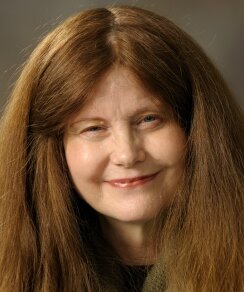Biography
Anne Haas Dyson is a former teacher of young children and a fellow of the American Educational Research Association. Among her previous appointments was as a longtime professor at the University of California, Berkeley, where she received the campus-wide Distinguished Teaching Award. She has spent over 40 years studying the childhood cultures and literacy learning of young schoolchildren, for which she has received numerous awards. Dyson aims, first, to bring respect and intellectual attention to childhood cultures and their relationship to school learning. Young children do not participate in school because they are concerned about the national economy, international competition, or climbing a ladder to academic accolades from a grateful nation. They desire to make sense of their world and to gain companionship in what can be a confusing world. Second, she aims to document the diversity of resources (languages, popular culture texts, semiotic tools, everyday experiences) our diverse school children bring with them with which to participate intellectually and socially in school, especially in written language development. Her most recent book publications are, published in 2016, Child cultures, schooling, and literacy: Global perspectives on children composing their lives, and, in 2021, Writing the School House Blues: Literacy, Equity, and Belonging in a Child’s Early Schooling.
Research Interests
My major research interests are related to the social and cultural processes of schooling and literacy, including:
+ethnographies of childhoods and, more broadly, of the experiential qualities of contemporary schooling for all participants
+the development of childhood cultures, especially the role of popular culture in that development, with a particular interest in city kids
+the development and use of written language in contemporary childhoods and cross-culturally
+the politics of identity and language in school, including the role of English variants, like African American Language.
More particularly, my research centers on the intersection of literacy and childhoods. The latter is a relatively new interdisciplinary field which focuses on both how societies conceive of and arrange for “childhoods” and, also, on how children themselves act as agents in the construction of their own childhoods. For example, my current project is based on a longitudinal, ethnographic study of a minoritized child’s transition from a preschool of primarily children of color through a majority white school. The central theme is the child’s negotiating of a sense of belonging, given his identity as “different.” The project demonstrates the intersection of race, class, and both claimed and ascribed academic identity in peer culture, which itself shapes opportunities to be “smart.” It also highlights the contradictory role of written language in children’s journey through school: it functions both as a means of labeling children and as a tool for expression and communication.
Courses Taught
Dyson, whose courses are consistently rated as excellent, teaches courses in three major areas. First, she teaches qualitative methodology, focusing on ethnographic studies in educational settings. Among her courses are both an introductory level methods course and an advanced issues course for students working on proposals and dissertations. The methods course fills up within a matter of hours. Second, she teaches courses on language and literacy, stressing both their sociocultural diversity and the issues regarding their politicization in the schools. She also teaches a course on young children’s initiation into school literacy, stressing children’s socialization into literacy practices, both official and unofficial (or peer governed) and schools’ institutional processes that privilege certain learners, thereby constructing “success” and “failure.” Finally, she offers a class on popular culture and contemporary childhoods, considering the dynamic relationship between childhoods and consumer culture. In addition to her formal teaching, she consults with a large number of graduate students on their research.
Additional Campus Affiliations
Professor Emerita, Education Policy, Organization and Leadership
Recent Publications
Dyson, A. H. (2025). Following the sounds of children’s “voices”: A researcher’s portfolio. Journal of Early Childhood Literacy, 25(3), 523-555. https://doi.org/10.1177/14687984241265067
Dyson, A. H. (2023). “You're Hot Lunch, Aren't You?”: (Re)Producing Inequity in Children’s Worlds. In H. Yoon, A. L. Goodwin, & C. Genishi (Eds.), Reimagining Diversity, Equity, and Justice in Early Childhood (pp. 23-42). (Changing Images of Early Childhood). Routledge. https://doi.org/10.4324/9781003399155-3
Dyson, A. H. (2022). Excavating childhoods’ layers: an ethnographic dig into inequities of race, class, and literacies. International Studies in Sociology of Education, 31(1-2), 49-66. https://doi.org/10.1080/09620214.2021.1944818
Dyson, A. H. (2021). Writing the School House Blues: Literacy, Equity, and Belonging in a Child’s Early Schooling. (Language and Literacy Series). Teachers College Press.
Dyson, A. H. (2020). “This isn’t my real writing”: The fate of children’s agency in too-tight curricula. Theory Into Practice, 59(2), 119-127. https://doi.org/10.1080/00405841.2019.1702390
